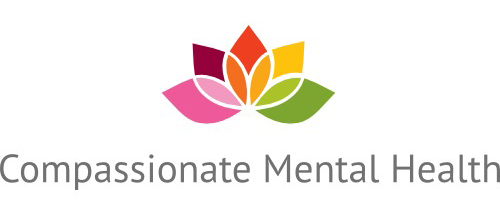Why meaningful conversations matter by Jo Watson
That was it – the final straw! I had to do something or risk getting a ‘diagnosis’ myself.
I can’t remember the exact circumstances, but I know that there had been an accumulation of stuff. Just one thing after the other; seemingly relentless.
It was February 2016, the UK EU referendum debate was beginning to warm up and my tolerance for absorbing toxic tweets and frustrating Facebook posts was dwindling fast. Not long before this Stephen Fry’s documentary ‘An exploration of manic depression’ had been aired and Ruby Wax was on a riotous roll, touring with her new book and generally shouting about ‘broken brains’ at every available opportunity.
The narrative of diagnosis and disorder was all over the place. It had somehow, when we were not looking, managed to sneak quietly into our profession.
The diagnostically-based biomedical model is based on a very different understanding of distress than any counselling & psychotherapeutic theory that I know of. The infamous DSM – Diagnostic and Statistical Manual of Mental Disorders (the book where all the disorders live!), belongs to the biomedical model that has come from psychiatry. This model sees distress in terms of medical signs and symptoms and then assigns people diagnostic labels such as ‘schizophrenia’, ‘bipolar disorder’ and ‘personality disorder’.
Taking off the blinkers
I have a visual memory of being a kid at a party, blindfolded and spun around as part of a game every child knows. I think in my disorientated state I managed to clumsily pin the tail to the donkey’s face. I feel strongly that the pinning of labels on people is routinely inaccurate too. Indeed, these diagnoses have been created around a table where people with various views have thrashed them out until they’ve come up with an agreed list of criteria. It is not an evidence based exercise. It is ALL opinion. And yet these opinions go on to affect, and sometimes control and define, people’s lives.
The labels put people into boxes and often close the lid. In many instances a diagnosis then matches them up with the recommended chemical medication for that particular ‘disorder’.
This works exceptionally well not only for the pharmaceutical industry, whose representatives often frequent DSM panels, but also for governments, as it is a very happy convenience for them if everyone believes that their distress is caused by their brains getting sick and going wrong. After all, if your brain is broken you can hardly blame your distress on any social ills can you? That would be silly.
Understanding the roots of distress
But as therapists surely we know that mental distress is not caused by biology, by brain chemistry, by genes? Have we not been talking about attachment and trauma for far too long to forget it? Yet despite knowing this fundamental foundation that we grew from, are we as a profession somehow colluding quite nicely with the message that tells people ‘you are ill?’
I am seeing an increasing number of clients (particularly lots of young people) who arrive convinced that they have, or even worse are, ‘bipolar’. Many, by the time they get to me, have internalised this as part of their identity along with the understanding that it’s a lifelong situation.
Others come with crippling anxiety and a parallel belief that it is something that is part of them, their brain that is dysfunctional, and that they have no control over it. Arguably the logical conclusion to this belief is that the only option is to treat it with medication, to make it better or at least manage it.
The risk in all of this (apart from the well-researched many negative effects of the medications concerned), is that the real life experiences – the effects of poverty, of racism; the trauma, the abuse, the lack of attachment; the bullying, the grief and THE PAIN – are all sidelined or forgotten.
Getting the conversation started
So, going back to February, it’s fair to say that my intolerance for the uninvited thing on the sofa had reached a new level. I had to do something and I felt that getting people together to initiate the conversation would be a pretty good start.
This then developed into a day event planned for October 15th in Birmingham with Dr Lucy Johnstone, who had been a Twitter ally of mine for quite some time. I had read Lucy’s book ‘A Straight Talking Introduction to Psychiatric Diagnosis’ and it had impressed me to the point that I wanted to buy everyone I knew a copy! I approached her with the idea of a day in Brum and she said ‘Let’s do it!’
How we made it happen
Within a couple days of advertising it was a viable event with people eager to travel from places including London, Wales, Scotland and Ireland to come and hear Lucy speak. It had struck a chord for many people. There was obviously an appetite for the subject. On the day we had around 80 people attend, all who went away with a spark lit for revolutionising the way people think about and “treat” mental distress. Lucy and I presented alternatives to psychiatric diagnosis which can help clients to make sense of experiences of distress, however extreme. The methods we explored are based on working together to explore personal meaning. Creativity played a big role, and we were fortunate to top and tail the day with calls to action from poets Jo McFarlane and Jasmine Gardosi.
Now the event is over, but the buzz is still in the air. The exciting thing about all of this is that the debate has opened up in massive way. There has been significant interest from various places around the country and Ireland, with requests to bring the same event to them next year.
I also started a Facebook group exactly 2 weeks ago that already has almost 1000 members! Not only that, but the group members are people from all over the world and include key figures in the debate like Dr Terry Lynch, Rufus May, Rai Waddingham, Michael Cornwall, John Read, journalist & author Katinka Blackman Newman and activist & blogger Nicky Hayward. All very exciting!
People have told me that they feel hopeful. There is definitely a sense of anticipation, and of excitement as connections are being made and thoughts and feelings are being expressed. I too am hopeful. Hopeful for change, and optimistic that as the debate continues to grow in counselling and psychotherapy we can collectively find a way to keep having these meaningful conversations. Only then can we shift beyond a purely biomedical understanding of mental distress, to psychosocial approaches that put people and their stories back at the heart of the matter.
___
Jo Watson is a psychotherapist, trainer who is passionate about challenging the theme of ‘diagnosis and disorder’. Jo believes that the primary cause of mental distress is experience not biology and that the language of disorder needs to be replaced with a more positive, trauma informed narrative. Jo is committed to promoting this debate in professional and non professional circles alike.
You can follow Jo on twitter @JWpsychotherapy
Find out more..
Join us on November 18th in Cardiff at Compassionate Approaches to Mental Heath – a one day experiential event designed to inform, inspire and empower people living and working with mental distress.
Please book now to join us in Cardiff. Limited £35 tickets – sponsored by Welsh mental health and wellbeing charity Gofal – are available for people with personal experience of mental health issues, and their supporters.




Leave a Reply
Want to join the discussion?Feel free to contribute!